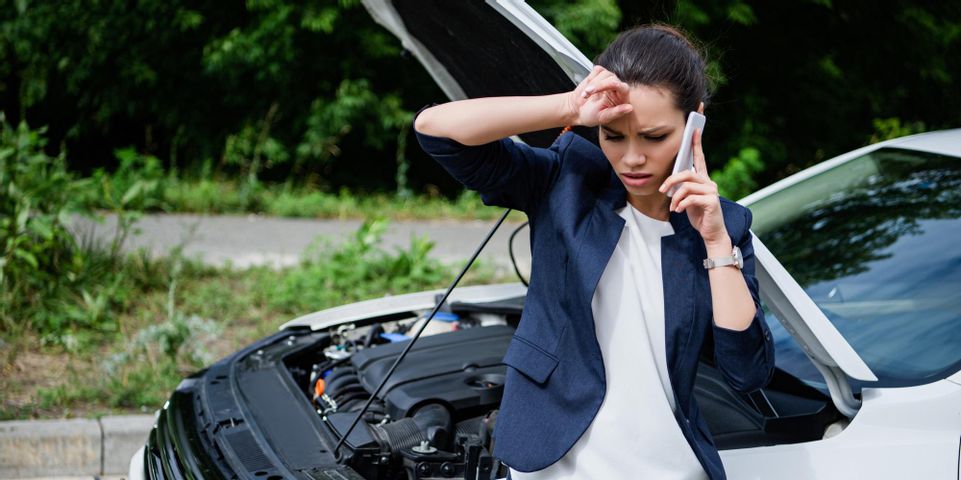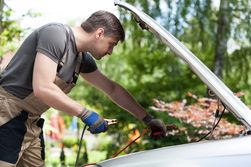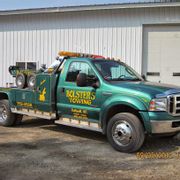4 Mechanical Issues That Could Stop Your Car From Starting

Unless you’re a mechanic, you might not know what to do when your car suddenly won’t start. The following guide explains a few of the most common problems that can keep the engine from engaging and a few tips for how roadside assistance can respond.
4 Reasons Your Car Won’t Start
1. Defective Starter
If you turn the key and don’t hear anything at all—or hear a clicking noise that doesn’t sound like the engine turning over—you could have a broken starter. Usually, this happens when the solenoid is too worn to engage the flywheel and crank the engine.
If there’s a passenger in the car, you can test the starter by checking the headlights. The driver should turn the key in the ignition with the headlights on while the passenger stands at a diagonal a safe distance in front of the car. If the lights don’t flicker on at all, the problem is probably related to the battery and not the starter.
2. Battery Corrosion
Some corrosion is to be expected and a normal part of everyday wear, but if your car doesn’t start in the middle of a heatwave, look under the hood. If there’s a green or white powdery buildup on the battery terminals, it can act as an insulator and prevent the charge from transferring.
If there’s just a little bit of corrosion, you might be able to clean off the dirty terminals with a rag. But certain conditions can also make your car battery dangerous—even potentially explosive. Batteries create hydrogen gas as a byproduct, which is extremely flammable.
When it’s hot outside, batteries release even more hydrogen than normal, and if there’s a spark near the battery, it can trigger an intense chemical reaction that will blow apart the plastic case and spray sulfuric acid.
To avoid the possibility of any mishaps, you should keep the battery terminals clean and call for roadside assistance rather than try to adjust the battery on your own.
3. Dead Battery
 If you leave the lights on, listen to the radio, or blast the AC when the car isn’t running, you could deplete the battery charge. When this happens, roadside assistance can jump-start your vehicle and get you on the road again.
If you leave the lights on, listen to the radio, or blast the AC when the car isn’t running, you could deplete the battery charge. When this happens, roadside assistance can jump-start your vehicle and get you on the road again.
Most car batteries last between two and five years and might have a slightly longer lifespan in areas like Montana with a colder climate. After a certain point, however, they stop retaining the charge, and no matter what you do, the battery could die at any point. If your battery stops charging and is a few years old, replace the battery as soon as possible.
4. Empty Gas Tank
It’s good practice to keep your gas tank over a half a tank full to protect the fuel pump. This has the added benefit of also ensuring you never run out of gas. But if your tank is empty and the car won’t start, all you need to do is add fuel.
If you drive a truck with a diesel engine, however, an empty gas tank can damage the injectors and filters. A mechanic will probably need to bleed air from the fuel system and replace the broken parts.
If you can’t get your car to start in Kalispell, MT, or the Greater Flathead Valley area, Bolster's Towing can help. They offer 24/7 roadside assistance and towing and have over 45 years of experience. To learn more about their services, visit their website or call (406) 752-4528 to request help immediately.
About the Business
Have a question? Ask the experts!
Send your question

